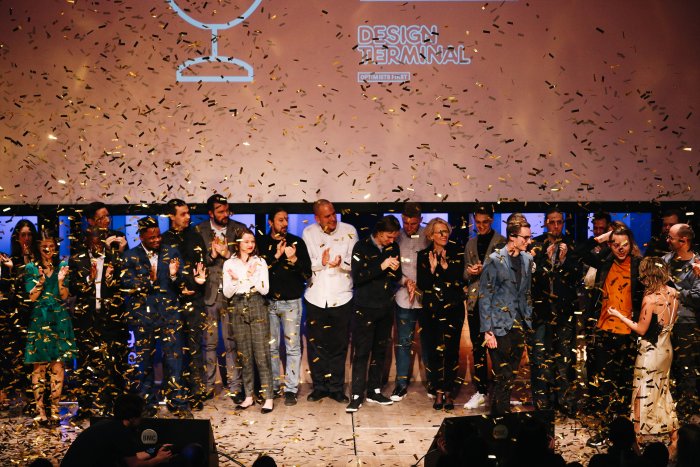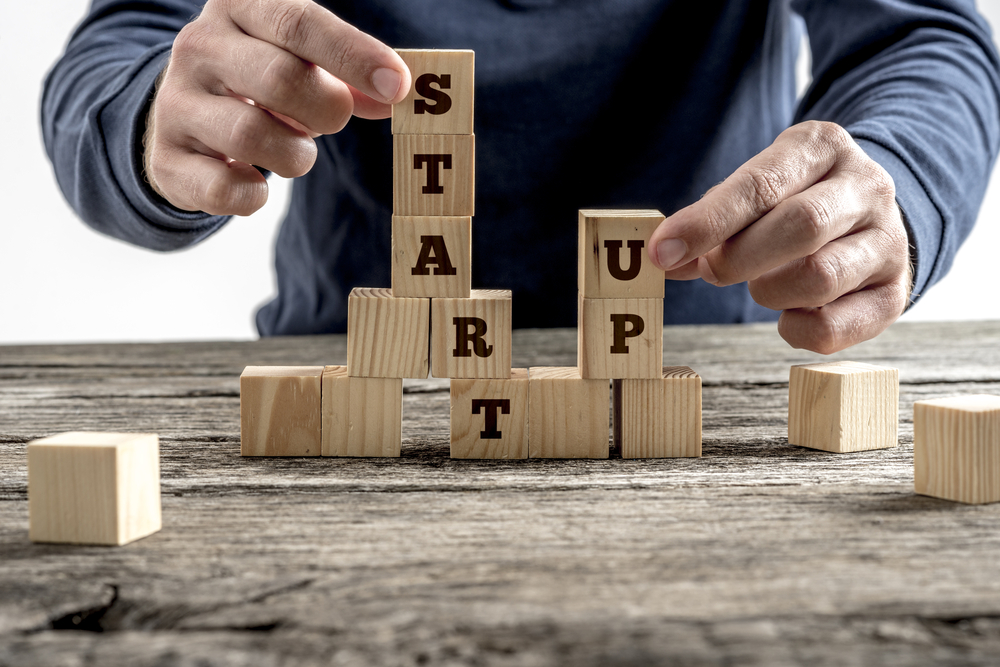Mentoring Startups to Their Next Level

Seven Hungarian, one Barbadian and an Austrian startup completed Design Terminal’s latest mentoring program in fall 2019. The teams showcased their progress to an expert jury and the general public (and the Budapest Business Journal) on Demo Day, on January 30.
Since its inception, both the Mentoring Program and the organization have gone through significant changes. From an institution supporting design and fashion – and thus, designers – Design Terminal is now focusing on startups with social impact or with a mission.
The relevance of this program as well as their weight varies, as the list of those being mentored in the fall semester shows. From an LED bicycle lane indicator bracelet which makes cyclists move visible (by Useeme) to an IT solution that can predict the effect of different drugs on cells and thus accelerate drug development (by Cytocast), the scale is wide.
When it came to selecting the teams, the organizers placed more emphasis on the personality of the founders and the team behind the idea or the actual product.
“This way, should their original ideas fail, the founders will still acquire entrepreneurial skills they can make a very good use of when working on their next, and hopefully even more successful, startups,” says Anikó Ivanics, head of the mentoring program.
The above approach makes sense as an idea or even a prototype is easier to modify than one’s character. This also fits today’s hiring trends that place more emphasis on soft skills and adaptability than expertise.
Regionally, Design Terminal is also more restrictive as it is focusing more on the Visegrád Region and those countries where it has already successfully mentored startups, such as Austria, Denmark and Sweden. It believes the participation of foreign teams adds huge value to the startup community.
“Young entrepreneurs from Hungary tend to have this habit of thinking small (and little of themselves and their capabilities). They need to be encouraged to grow out of that, so they dare to dream big and build an enterprise,” Ivanics says.

Inspiration
“They tend to be harder on themselves when it comes to success or failures. What we would like to achieve is that this community inspire them to get better and they stop comparing themselves to others who may be ahead of them. Instead, they should look for ways to use that gap as a source of inspiration rather than a limitation,” she adds.
“Entrepreneurs from different countries will take a different approach to a problem, and this what teams can learn from one another.” The key to success is diversity, be it skills, expertise or age, as it will introduce a new mindset into startups lives, Ivanics says.
The program helps the startups get more foreign exposure on the markets they would like to enter. What is crucial during the program, according to Ivanics, is that teams learn to embrace their strengths, what members of the team they can rely on, how they can co-operate under pressure and what their short- and long-term goals are.
Goal-setting was, indeed, an enhanced part of the program, according to the winning group, BLock. A startup from Hungary on a mission to eradicate bike theft and popularize cycling, BLock’s bicycle locks makes parking comfortable and safe for urban cyclists. It has participated in a number of startup/mentoring/accelerator programs so far, so has a good basis for comparison.
“We were given so much attention that we never had in any other program before,” says Szabolcs Szilágyi, founder and CEO of BLock.
During a weekly check-in on Fridays, the teams had to present to their peers and mentors how successful they had been at fulfilling the goals set a week before.
“This way we were forced to reflect on the previous period in a good sense and take pride in even the smaller achievements,” Szilágyi says. “The expectations were high; as a result, we could progress a lot,” he adds. (For more on BLock, see our regular Startup Spotlight feature on page 11.)

Marketability
Although it is the teams’ abilities and skills that get sharpened the most, the products and their marketability also go through a lot of phases. From a solution originally tailored for professional athletes, Skain, an Austrian startup turned to a general public and gyms.
Its solution, Trackbar, allows one to track their strength training, alongside many other features from cardio to rest. It can track work done on a machine or even with free weights and is able to analyze not only the number of repetitions, but also the quality of those reps (for example, the range of movement).
The data can be analyzed by (online) coaches, who can thus keep in constant touch with their clients and make sure they don’t lose motivation.
“It costs a lot [of money] for gyms to get people to the gym. And, if they drop out, it costs a lot for them to reduce those fluctuations,” says Stefan Schade, CEO and co-founder at Skain. The enterprise will start pilots in April, partnering with gyms’ software providers to add their solution to existing software.
Securing investment for later stages is not part of the program, though Design Terminal helps startups in other ways, from drawing up a financial plan to connecting with potential investors. The mentoring program also intends to tie those who have already gone through the program with the current crop, so they listen to the experience of former alumni. This is also how they stay in contact once the program is over.

SUPPORT THE BUDAPEST BUSINESS JOURNAL
Producing journalism that is worthy of the name is a costly business. For 27 years, the publishers, editors and reporters of the Budapest Business Journal have striven to bring you business news that works, information that you can trust, that is factual, accurate and presented without fear or favor.
Newspaper organizations across the globe have struggled to find a business model that allows them to continue to excel, without compromising their ability to perform. Most recently, some have experimented with the idea of involving their most important stakeholders, their readers.
We would like to offer that same opportunity to our readers. We would like to invite you to help us deliver the quality business journalism you require. Hit our Support the BBJ button and you can choose the how much and how often you send us your contributions.








